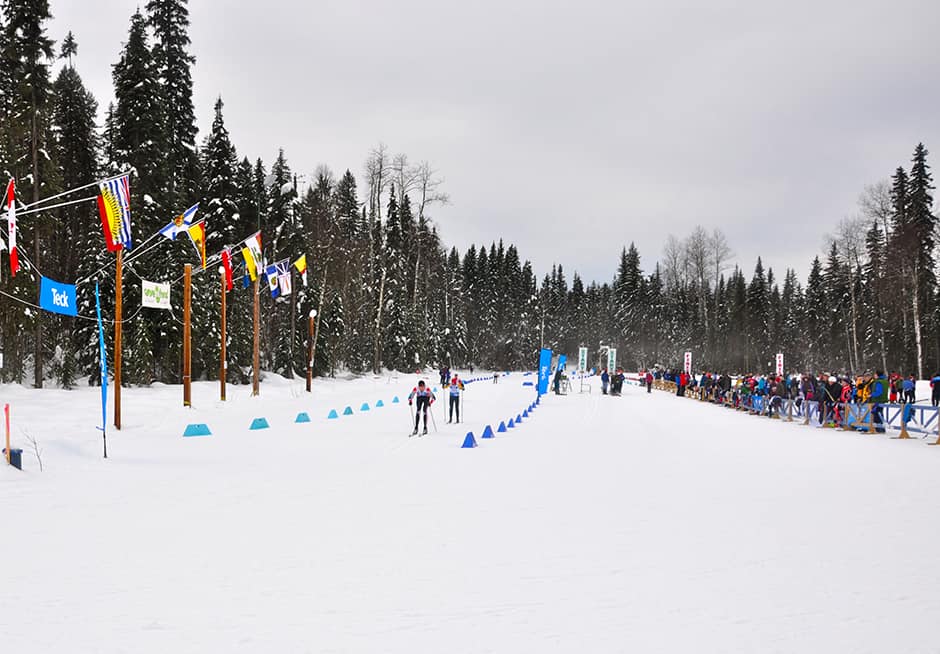Liam Fox is not the average student athlete. More than the obligations that come with both, Fox also coaches the nordic skiing team.
His responsibilities can be overwhelming, and in order to manage all of them, he must prioritize certain aspects over others.
“With 20 hours per week of training, plus having to teach new skiers, dole out equipment, plan out the race season, and still get 8 hours of sleep, it’s not rare that my school work comes to a grinding halt,” says Fox.
The team’s previous coach, Hans Fischer, had 12 years of combined experience as an athlete and a coach. When he stepped down from the role two seasons ago, Fox and former co-captain Mary Qiu stepped up to fill his role.
Fox recalls, “We had to recruit new athletes, go to an absurd number of meetings, manage team finances, order team clothing, and many more mundane administrative tasks — all while trying to teach a group of novice athletes how to ski.”
The nordic ski team trains athletes whose skills range significantly. Despite the variance, Fox emphasizes that the goal is to have all athletes racing as soon as possible.
“I’ve found that… the best learning outcomes occur when you’re in the thick of it, making your own mistakes, acknowledging them, and becoming a better athlete as a result,” says Fox.
To be competitive with schools that have advantages over U of T’s team, such as Carleton University, Fox insists that athletes start training with the team in September. He emphasizes the need to start the season early and build a sense of team interdependence.
Fox is a firm believer that while attitude may not be everything, it certainly is a factor in athletic success. “We don’t necessarily love waking up at 5:30 am to roller ski down Lakeshore. We do it because that’s what it takes for us to be successful, and we still complain about it, from time to time,” he says.
Fox realizes that he and his teammates are students first and athletes second. “None of us expects to make the Olympics; we’re all just out here to have a good time and be as fit as we can,” he says.
Fox believes that this season is different from the last, which he describes as a “rebuilding year.”
“We now have a core number of athletes who I believe will stick with us for a few seasons,” he explains, adding: “The nature of sport involvement at the university level is transient, as most of us are only here for four years, and many of us have other priorities besides skiing. I imagine that in some regards, every new season will be a ‘rebuilding year’, but I’m happy now that we have this core,” Fox adds.
The Nordic Skiing team, along with many “third tier” varsity teams, faced funding cuts this year after the release of the new sports model.
Fox recognizes this as a problem, stating that: “Most sports that don’t draw the kinds of crowds that a football or hockey game will draw. As corporate entities, universities understand well that their brand won’t be promoted as effectively through their nordic ski teams.”
While unsure of how the team will overcome this challenge, Fox urges the university for support.
The Nordic Skiing Team trekked to Collingwood for the World Junior/U23 Trials at Highlands Nordic this past weekend, and continue to compete in both the Ontario University Athletics championships and the Ontario Cup series. Fox is confident that U of T will have one podium finish this year.


